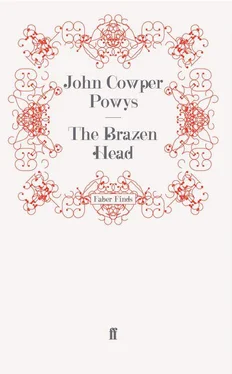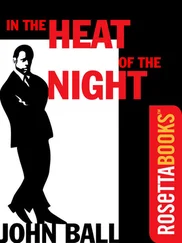And he was only aware of being back again, for a second or two of submission to Time, the magic power which had delivered him, when he was lost, to all that was and all that might be, in a deep and dreamless sleep.
XIX MASTER PETER PEREGRINUS
It was not until the late summer of the year of grace 1272 that Petrus Peregrinus of Picardy approached the channel between France and England with the intention of crossing to the district in this latter country, where his scientific rival Roger Bacon was still incarcerated. He had been supporting himself in his usual manner, till what he called his “experiments in magnetism” brought him serious enemies, and so discomforted the local authorities as to endanger his freedom of movement. It was then that he decided upon a bold move.
In plain words he joined, for the time being, and with an understanding that he could leave it whenever he wished, no less important a body of European soldiers than one of the divisions of the King of France. He took service in this particular body of men not from any hostility to the Swiss or the Spanish or the Portuguese or the Italians or the Germans, but purely from a desire to earn money which he could save up and spend on leisure to study magnetism and to write a treatise on it.
He had been in luck this particular summer; for though the force he chose to join had had nothing to do with any crusade, nor had been used for any important campaign, it had been posted in a part of the country where there was a constant demand for military aid in the protection of rich farmers and of their flocks and their barns from wandering bands of marauders, whose extreme destitution had made them freebooters.
Petrus had given himself up to all manner of mad dreams while his camp was moved from place to place; but in one way and another he had saved up quite a little hoard of such silver pieces as were exchangeable coins, if not current coins, in most of the countries of Europe.
It was on a hot day in late summer, and he had reached a little circular valley in Savoy, when an event occurred that was of importance in his life. He suddenly came upon a cross-road hut in the centre of this little valley, which was inhabited by a couple of persons who were so aged as to look barely human. He had been along this border of Savoy before but had never before passed through this particular valley, but it was here he was destined to receive, or here that pure chance flung upon him, an inspiration of a very curious kind.
Whether this inspiration came from an angel, and had an angelic purpose behind it, or came from a devil, and had a diabolic purpose behind it, it would be impossible to say. But either, if for the nonce we rule pure chance out of it as the arbiter of such events, was certainly possible.
An angelic power might very well have decided that, before Peter Peregrinus had continued his tortuous career for another day, it would be good for the world in general if it were cut short. On the other hand a devilish power might easily have come to the conclusion that there was nobody on earth at this hour who, if only preserved alive for a few moons longer, could work so much harm to the human race as this traveller from Picardy.
“What do you call your turnpike corner?” enquired Peter of this couple of age-stricken ones, as they sat side by side on a wooden bench, filling a big wooden bucket with a mess of sour milk and mouldy bread and bad potatoes, while a big bristling sow of a yellowish colour uplifted her snout from a hollow place scooped out of the ground before them.
“What does the lord on his feet say?” enquired the antiquity who wore male clothes, addressing the antiquity who wore female clothes.
The woman made no reply to this question. But she rose to her feet and held out a long skinny arm with a regular birds’ claw at the end of it.
“Give silver, great lord of the highway,” she murmured huskily in a queer French patois: “and me yes! even me, will give you the magic word for your long travel.”
The enormous head of Peter of Maricourt moved a little, or perhaps we ought to say drooped a little forward, while from the white expanse of his face, like the sting of a creature that might have stung itself to death in the days of the father of Abraham, protruded the sharp tip of a presumably human tongue.
His black eyes seemed to the companion of the female antiquity, who still kept opening and closing her extended fingers, to flow into each other till they ceased to be two bottomless blacknesses and became one. But whether they were one or two, they evidently read in the Cretan Maze of feminine wrinkles upon which they were now concentrated that that seemingly dried up fountain of wisdom had a tap that was well worth tapping.
“Yes, by Satan,” the traveller must have thought, “I’ll get something out of you!” for he was not only nodding with his head now, but he was also searching in the lining of his jerkin.
At last he brought out a couple of silver coins, a big one and a little one. These he turned over in his fingers many times, so as to make sure the woman saw just what they were and the difference between them. Having satisfied himself that both these things had been observed, he negligently flipped the edges of the two pieces of silver together and permitted his own raptorial orbs to relapse into their respective hollows, while they took in the geographical position of this most pitiful of all possible turnpikes.
He soon became aware that the narrow road he had come by, and the three radiating roads now offering themselves as rivals for his next move, were all sloping upwards. And the queer thing was that, while there were occasional trees, some big, some small, some deciduous, some coniferous, along the edges of all these roads, the ridge or rim of the shallow grassy basin out of which they all led and over which they all vanished into the void or into the clouds, was entirely bare, bare of gorse or bracken or black-thorn, so nakedly bare that it was possible even to note the varying height of particular patches of ordinary meadow grass.
“Why is it,” the man asked himself, “that to stand at the bottom of a shallow bowl like this and look up at its grassy rim, about half a mile, I suppose, from this hut, gives me such complete acceptance of my fate as I feel at this moment? If my fate had been totally different from what it is, I mean different from the fate of being the Antichrist , who has been prophesied of as long as the Christ has been prophesied of, should I, I wonder, feel this same acceptance of it simply from staring up at this rim of grass?
“If, for instance I’d been a Jewish youth like Moses and had come here straight from a vision of the burning bush, with the voice of Jehovah issuing from it and the revelation that it was my fate to lead Israel out of Egypt, should I be feeling this same calm acceptance of such a fate as I feel now when I fall into my role as the self-appointed antagonist of Jesus? Is there perhaps a revelation of some planetary Anangkee, or sublime Necessity, in the mere presence of a naked rondure of earth and grass like this against the whole of empty Space?”
With this thought and with this spectacle in his mind, Petrus Peregrinus returned the larger of the two silver coins to the folds of his jerkin and handed the smaller one to the woman, who clutched it, and proceeded to bite it with what were obviously the only teeth in her head that were opposite each other.
Clearly satisfied with the sensation in her mouth caused by this action, she opened with a metallic snap a small receptacle fastened to a leather belt round her waist and slipped the coin inside.
“And now,” cried Petrus Peregrinus, fumbling with a bag in the lining of his jerkin adjoining the abode of his special treasure the loadstone. Presently he produced from this receptacle a small live slow-worm, at the sight of which the woman in front of him was seized with panic, and leaving her seat crouched down behind her mate, who groaned and shut his eyes.
Читать дальше











